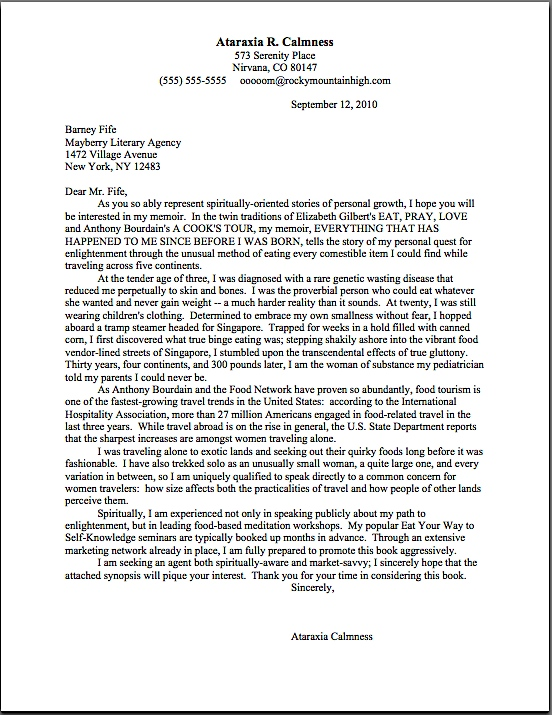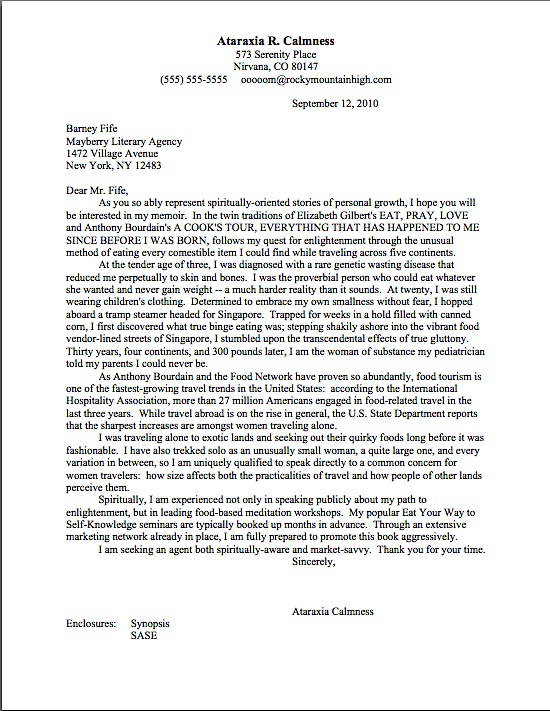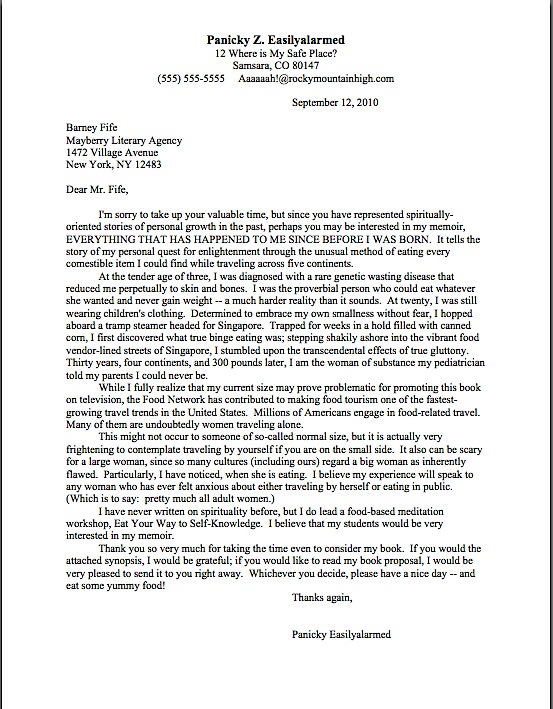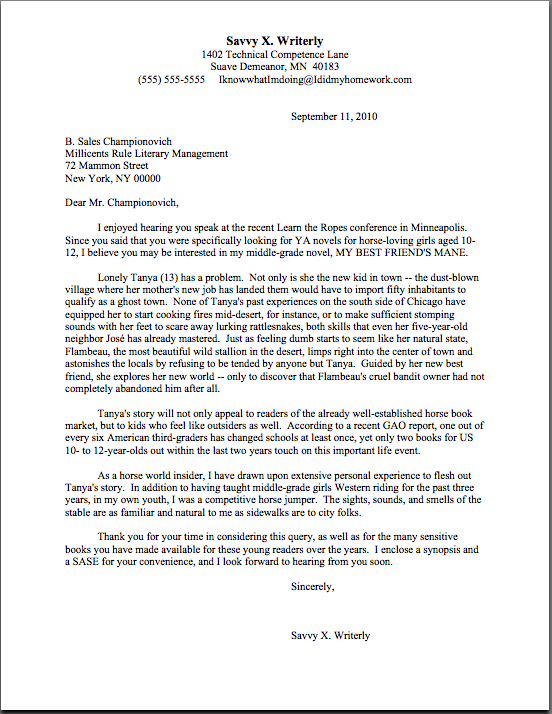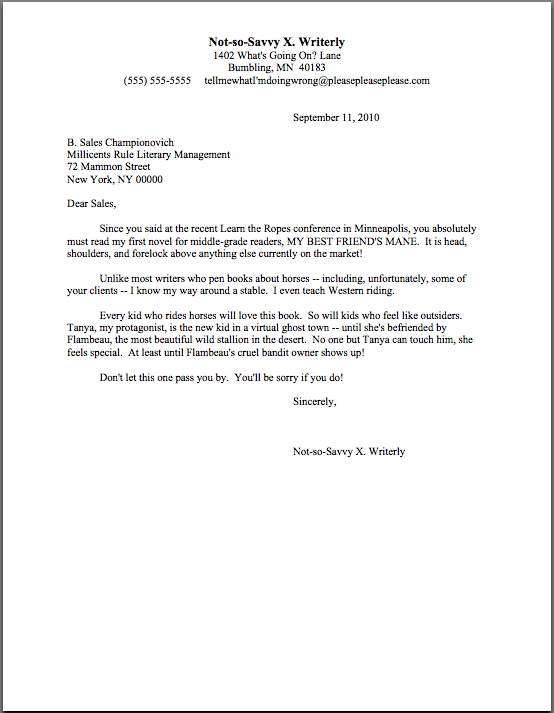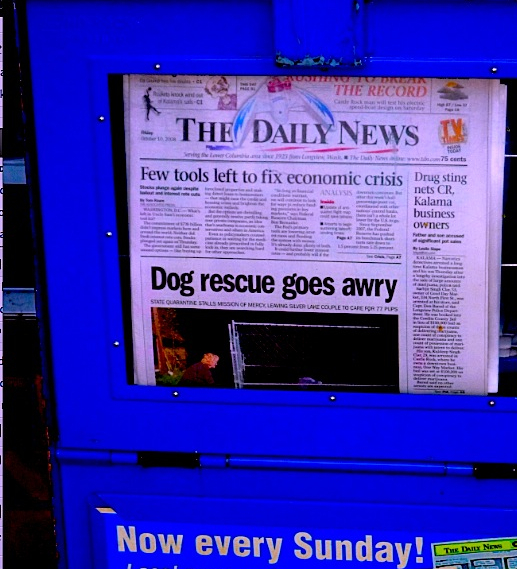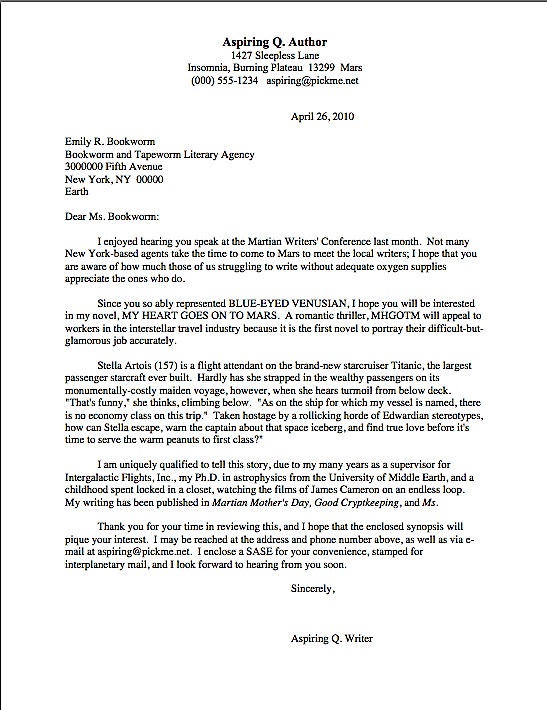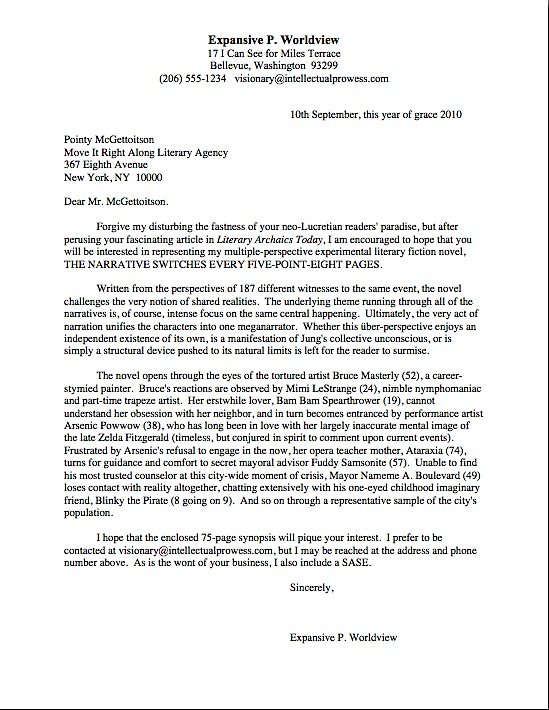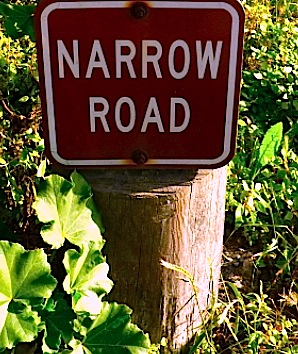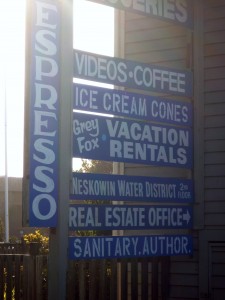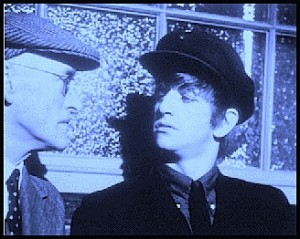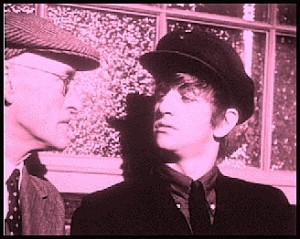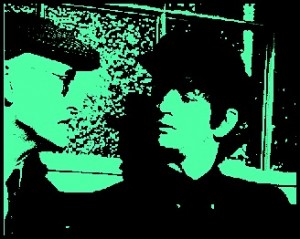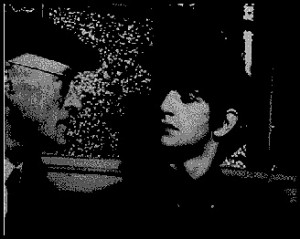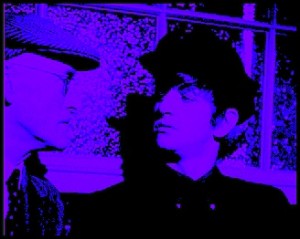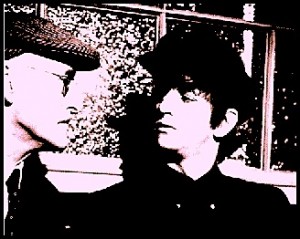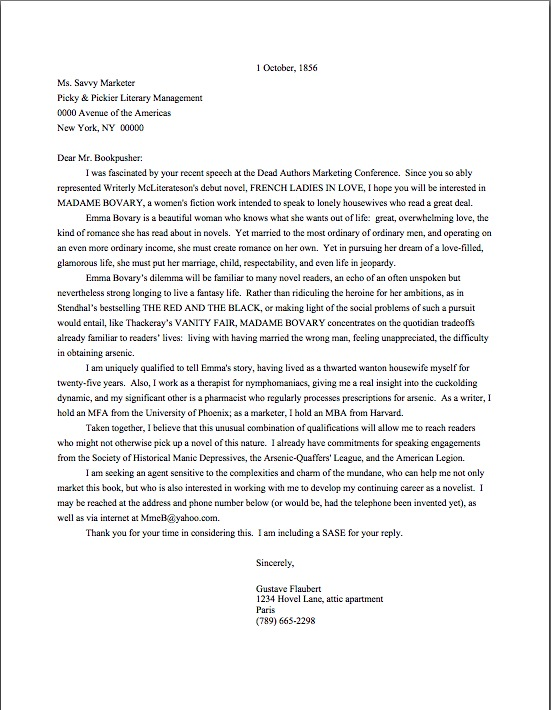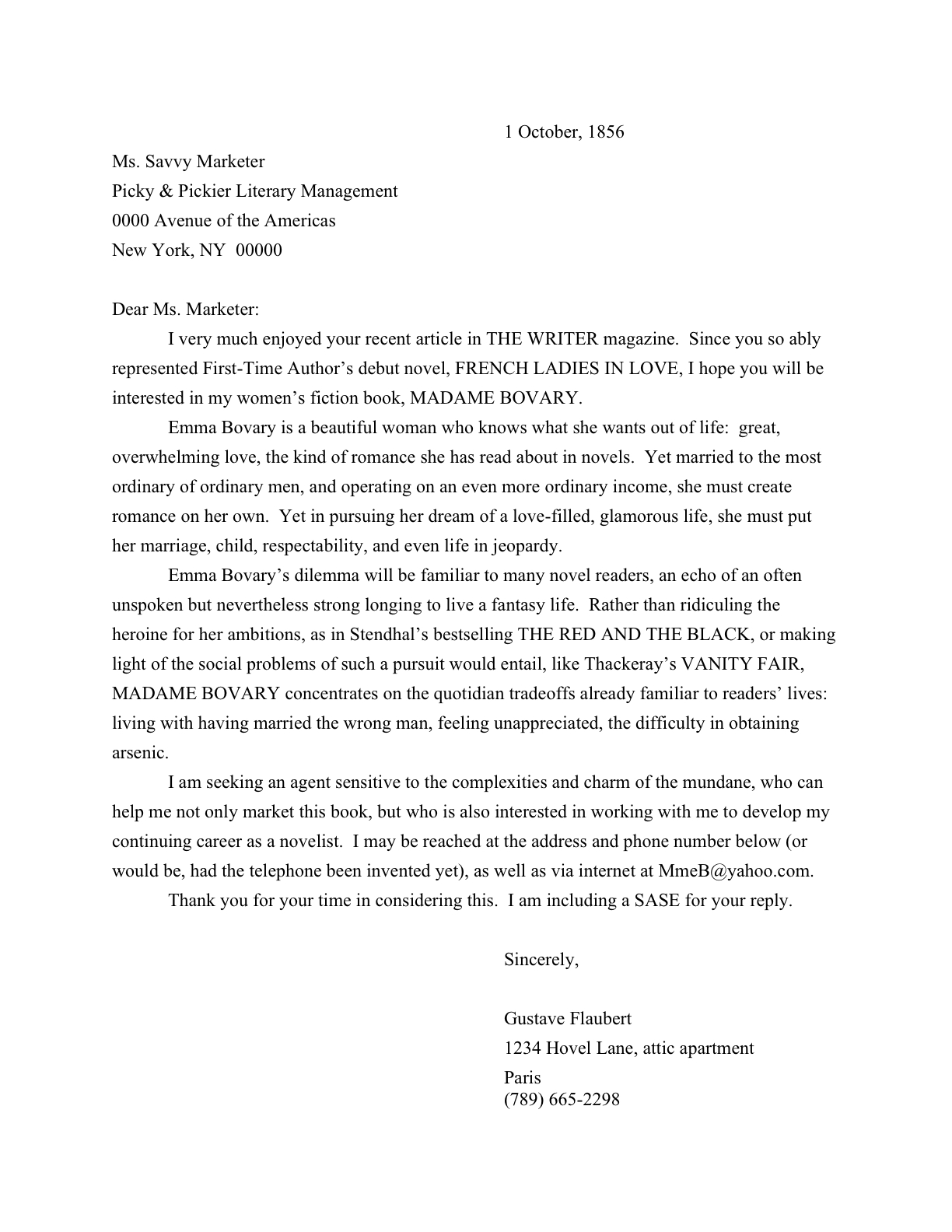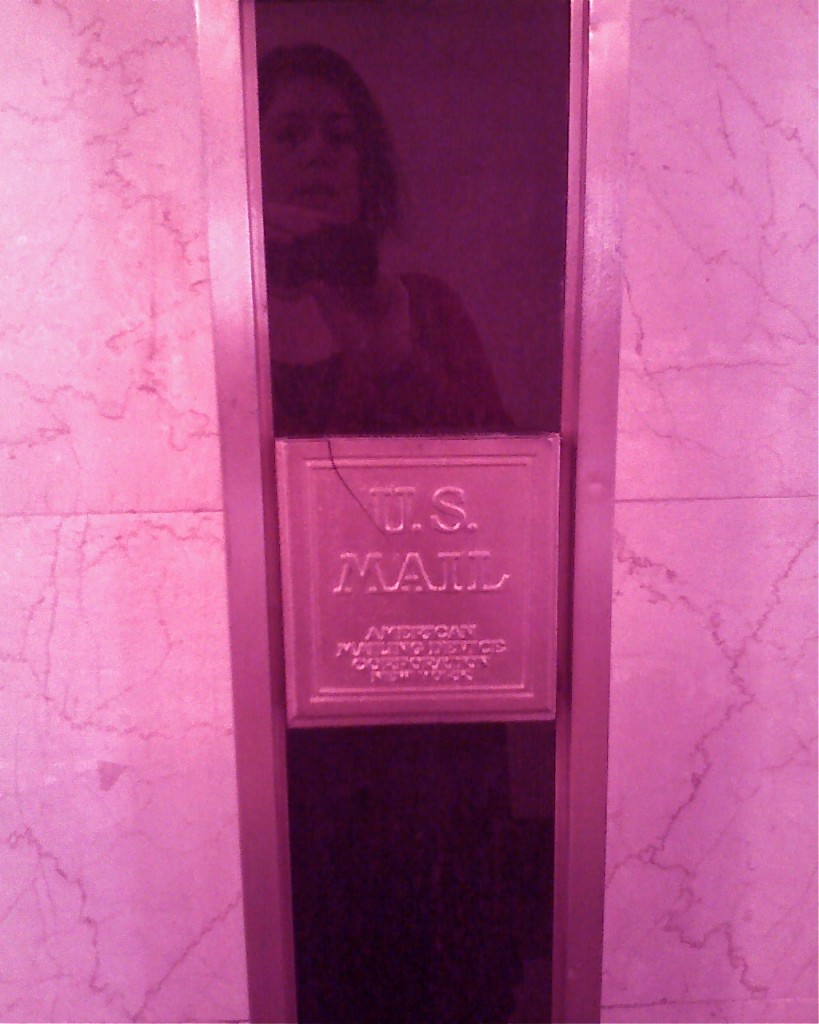Last time, if you will recall, we bent our substantial collective cranial capacity to the fascinating question of what happens to a query or submission after it arrives at an agency, with particular emphasis upon a subject endlessly hypnotic to agent-seeking writers everywhere, submission gaffes that might prompt our old pal, Millicent the agency screener, to snap into instant rejection-on-sight mode. Within that context, we dwelt long and hard upon the ways in which an electronic submission — i.e., pages that the agent has actually asked a writer to send via e-mail — might be received differently than a paper submission.
In case any of you missed that discussion, allow me to summarize it for you: it’s significantly faster to reject an electronic submission or query. Not to mention immensely easier to lose one or the other accidentally.
Why, you ask? Have you tried to lift a 400-page manuscript lately? The darned things are heavy.
Which is, of course, one of the reasons that more and more agencies are permitting — nay, even insisting upon — electronic submissions: it keeps them from being buried in paper, and their Millicents are less likely to rupture a spleen while processing Monday morning’s influx of queries and submissions. Oh, and a Kindle is quite a bit lighter to tote onto an airplane than fifteen full-length manuscripts.
But lest any of us kid ourselves, electronic submissions were practically unheard-of prior to the 2001 anthrax scare; prior to that, the overwhelming majority of US-based agencies did not even have websites. Immediately after those poisoned envelopes hit the news, however, quite a few agencies abruptly began accepting e-queries for the first time.
Even in an industry where working one’s way up has long been the norm, expecting Millicent to risk her life by opening envelopes was considered a bit de trop. (Hey, she may be paid very much — heck, at some agencies, she is an intern — but our Millie is a much-valued member of the agency team.)
They’ve been on the rise ever since; indeed, some agencies (but not most, by any stretch of the imagination) now accept only e-mailed queries. Others (but again, a minority) ask queriers to fill out an electronic form instead. Most of these forms allow writers to paste a query letter into the form, but some only allow queriers to type in a limited amount of information, with perhaps a space to paste in the first few pages of the manuscript.
Have these developments been good or bad for aspiring writers? Like so many aspects of both the changing publishing industry and technological advance, the answer is both.
There are, of course, distinct advantages to e-querying, although not as many as there were five years ago: it’s a significantly less expensive option for writers querying US-based agents from other countries, for instance. When computer-savvy agents first began accepting e-queries, they did tend to respond faster than their counterparts who worked purely in paper. Then, too, junior agents frequently screened their own e-mail for queries, rather than relying upon a Millicent. And even today, if an agency does indeed accept e-mailed queries, the querier may hear back a trifle more quickly and/or be slightly more likely to reach the agent herself by sending an e-mail.
Did the Internet-lovers out there just do a double-take? Yes, it’s true: even at this late date, there are many agents who will not read e-mailed queries. Ever. Period.
So before you even consider this option, check one of the standard agency guides to make sure it’s acceptable. (If you are unfamiliar with how to use an agency guide — the shorthand can be tricky — please see the HOW TO READ AN AGENCY LISTING category at right.) Or the agency’s website. If it has one.
Yes, seriously. Contrary to widespread writerly assumption, not every agency has a site posted on the web. This means that simply doing a web search under literary agency will not necessarily provide you with an exhaustive list of all of your representation possibilities. (For tips on how to come up with a list of agents to query, check out the HOW TO FIND AGENTS TO QUERY category on the list at right. How do I come up with these obscure category titles, anyway?)
But let’s assume for the moment that the agent of your dreams does indeed accept both paper and e-queries. Which is more to your advantage to send?
Well, it depends on the agency — and your timeline. You might well hear back about an e-query within a matter of hours, a most unlikely outcome for a paper query; then again, you might not. As I mentioned last time, turn-around times in agencies have gotten significantly longer over the last few years: what used to take just a couple of weeks now often takes a couple of months. Or more.
However, if an agency’s submission guidelines state point-blank that they do not respond to e-mailed queries unless they are interested, but that they do send out actual replies to mailed queries that include SASEs (a fairly common policy, amongst agencies that accept both), then it might be very much worth your while to query that agency via regular mail. Especially if you happen to be one of the vast majority of queriers who prefers to send out only one or two queries and wait until the agent(s) respond(s) before sending out any others: if that’s your strategy, you should be avoiding non-responders like the proverbial plague.
I frown upon the one-by-one strategy, by the way, and not just for electronic queries. Your time is just too valuable. Think about it: if you have six hot prospects on your querying list, and it takes two months on average to hear back on each, it will take you a year to query them all. But since practically no agencies insist upon exclusive queries anymore, why would you do that, when you could send out all six queries in the first week — and move on to another 6 if those do not garner the response you want?
Stop groaning. I would be as delighted as you if your first query happened to hit precisely the right Millicent working for precisely the right agent on precisely the right day — and not thirty seconds after she just burned her lip on that latte she always seems to be too impatient to allow to cool. However, even for beautifully-written first books by immensely talented aspiring writers, that’s exceedingly rare; finding the right fit for a book can be very time-consuming. It’s only prudent to plan to query widely.
Is that one-at-a-time strategy starting to seem less appealing yet? Or the prospect of hearing back sooner on any given query like a positive boon?
The relatively quicker response time on e-queries is not always an advantage, however. The human eye reads, on average, 70% faster on a backlit screen than on paper — not an insignificant increase, when Millicent is already skimming queries at top speed. She’s unlikely to have time for second thoughts: once her always-itchy trigger finger taps that DELETE key, that query is gone.
Which suggests a troubling philosophical question: isn’t the outcome identical whether she hits that key deliberately or by mistake — say, as an unconscious response to burning her lip on a too-hot latte? And now that so many agencies simply don’t respond to queriers (or even submitters) if the answer is no, how can the hapless writer of that deleted query letter ever know whether he never heard back due to Millicent’s determination that the book being offered would not interest her boss, her conviction that the book is inherently unmarketable in the current literary climate (not necessarily the same logic as the first), her reaction to a query that’s poorly put together — or her purely instinctive response to having spilled scalding coffee all over herself and her keyboard?
But most of you are not scared away by the possibility of having your baby rejected by caffeine, are you? “That’s right, Anne,” those of you excited about saving all of that paper (or just plain sick of licking stamps) shout. “I get most of my querying information online, and mirabile dictu, most of the agents who give advice online favor electronic submissions. So do a lot of agencies that pop up when I Google literary agency, remarkably enough. And it just seems a whole lot less time-consuming to copy and paste my query letter template — with suitable personalization for each agent, of course — into an e-mail than to print it up each time. So let’s have at it!”
Okay, electronic enthusiasts. Let’s talk about how to do this thing right.
E-mailing your query
As the shouters above indicated, e-mailing a query is pretty straightforward: it involves — wait for it — sending precisely the same query letter by e-mail that a writer would have sent via regular mail, minus the SASE. (You also don’t need to include the date or the recipient’s complete mailing address, as you would with a mailed letter. Just start with Dear Ms. Agentofmydreams, and proceed as with a regular letter.) In fact, if one composes the letter in Word, one can just copy it and paste it into the body of the e-mail.
There’s another big difference between an e-query and one that’s printed, a differential that should make business format-lovers everywhere rejoice: because most e-mail programs are hostile to indentation, it is considered quite acceptable not to indent the paragraphs in an e-query. Millicent might shake her head over the rapid decline in literacy amongst constructors of e-mail programs, but she will not blame you for it.
If you prefer to preserve the indentation (as I do, personally), go ahead and write a normal query letter in Word, then copy and paste it into the e-mail. If you find that one of the tabs disappears in transit — the last being the most prone to disappear in transit — you’ve not copied the final paragraph marker. Try this nifty trick: when you write the letter in Word, add an extra paragraph to the end of the letter. Copy and paste it into an e-mail; the actual text of the letter should arrive with the tabs all intact. Then hand-delete the extra verbiage.
Whatever you do, don’t send your letter as an attachment, or send a missive with a link to a generic query on your website. Most agencies have strict policies against opening unsolicited attachments (out of fear of downloading viruses), and I can tell you now that Millicent is not going to follow that link.
Why, you ask? Feel free to pull out your hymnals and sing along, campers: it’s Millie’s job to cull queries as quickly as humanly possible, to narrow down a roaring river to a manageable trickle. If she’s spending only about 30 seconds per query — probably even less on each e-query, because of that skimming-eye tendency — why on earth would she invest a couple of minutes in following a link to the website of someone too unfamiliar with how queries work to present her with a proper one?
My, we’re delving into a lot of deep philosophy today, aren’t we? Let’s lurch our way back to practicalities.
Composing the query first in a word processing program carries a couple of advantages. First, it’s easier to spell- and grammar-check. Second, it renders keeping good records of whom you have queried a little bit simpler: you can simply save each query as its own document, so you can keep track of what you have said to whom and when. (You do keep meticulous querying records, don’t you, so you will not approach the same agency twice with the same book project within a year? Repeat queries are considered quite rude in Millicent’s circles.)
Adhering to a two-step process also encourages a writer to re-read each query before sending it out in a way that simply resending the same e-mail over and over again (copy-and-paste works in most e-mail programs, too) does not. It will help you avoid some of the more common querying mix-ups: if you’re sending out a whole flotilla of queries at once, it’s pretty easy to hit SEND without realizing that your Dear Mr. Readerson missive just went to Ms. Picky. Or not to include the synopsis Ms. Picky’s agency’s submission guidelines request.
Another astonishingly common mistake in e-queries: not including any contact information. “But Anne,” computer-huggers everywhere cry, “isn’t that unnecessary? After all, Millicent could just hit REPLY if she wanted to ask me to send the manuscript, right?”
Not necessarily, no. Remember that nightmare scenario above, where her scalded hand accidentally hit DELETE? It’s also not all that uncommon for successful e-queries and e-submissions to be forwarded around an office, so the agent’s just pressing REPLY would merely send her opinion back to Millicent’s inbox, not yours.
And seriously: why wouldn’t you want to make it as easy as possible for these people to say yes to you?
Copying and pasting a query from Word can cause formatting problems, however — and not merely the tab disappearing act I mentioned above. If recent comments are any indication, many e-queriers have been horrified to discover after they have sent their e-mails (and having taken the prudent step of also e-mailing the letter to themselves, so they can see it as Millicent would), that there is an extra-large space between paragraphs.
“Hey, why is the formatting different?” they wonder indignantly. “When I pasted the letter into the e-mail, there was only a single line between paragraphs. Why the expansion? And will Millicent conclude that I am an idiot who doesn’t know how to format a letter properly?”
Since self-deprecating terms like idiot, moron, and complete dolt are a regular feature of comments by readers who have experienced this problem, I’m inclined to believe that it’s causing disproportionate chagrin. To set all of those worried (and not idiotic at all) minds at ease: no, Millicent won’t think the less of you if your e-query sports extra-wide spacing; it’s too common a problem. She’s knows that it’s the result of a rocky transition between Word and a lot of e-mail programs.
So don’t worry your smart little heads about it, okay? You’ve got bigger fish to fry.
Oh, dear — that didn’t convince all of you, did it? All right: let’s talk about how to eliminate this problem. First, you could write your query IN your e-mail program the first time around, then copy that to subsequent missives. You’d lose the advantages of composing in Word, but you wouldn’t have to worry about the formatting.
Or you could recognize that most e-mail programs and Word don’t have completely compatible word-processing bells and whistles. What constitutes a hard line break in Word (i.e., that skipped line between paragraphs) may well be a prompt for a two-line skip in your e-mail.
So how does one get around that? Don’t skip a line between paragraphs in the Word version. Just hit RETURN once at the end of each paragraph, as you would when typing in standard format. The sent e-mail will have only a single skipped line between paragraphs.
Seriously, it works. Send yourself a test query and see.
Querying via form on a website
Those forms are self-explanatory (part of their popularity, I suppose): many of them simply tell aspiring writers to paste their query letters into a form, along with a writing sample. I trust that you can figure them out on your own.
And if you can’t, I probably won’t be able to help: they’re too individualized for me to create general rules of thumb for dealing with ‘em. Sorry about that. Have you considered checking one of the standard agency guides to see if the agency with the troublesome form would accept a mailed query letter instead?
E-mailed query packets
Here again, the rule of thumb is precisely the same as for mailed queries: send precisely what the agency’s submission guidelines ask to see — no more, no less.
To tell you the truth, I’ve resisted writing much on this topic, for the exceedingly simple reason that I didn’t want anyone to confuse a query packet (i.e., the stack of things an agency’s website or listing in one of the standard agency guides might ask a querier to send along with the query letter) with a submission packet (the array of papers an agent has SPECIFICALLY asked a writer to send after a query or a pitch).
The former known in the industry as unsolicited materials, the latter as requested materials.
“But Anne,” some of you new to the process protest, and who could blame you? “I’m confused. If the agency’s website, guide listing, or page on that always-useful resource for writers seeking agents, Publishers’ Marketplace tells aspiring writers that they should send a synopsis or the first 50 pages with a query, in what sense is that not a request? Especially when half of those listings refer to their standards as submission requirements?”
I see your logic, oh rules lawyers, but you’re confusing passive guidelines with an active request. Anyone able to track down an agency’s website or listing might discover its submission guidelines, the prerequisites to which an aspiring writer must adhere in order to get a query under one of their agents’ spectacles at all. But as any agent or editor in the biz could tell you, agencies draw a very firm distinction between preliminary materials sent out of the blue (from their perspective) and pages that they actually asked a writer to submit, based upon a successful query or pitch.
How seriously do they take that distinction? Well, let me put it this way: I’ve seldom heard anyone who has worked within five blocks of an agency refer to any pages sent with a cold query (i.e., a query letter from a writer who has had no previous contact with the agency and hasn’t been referred by someone they know) as a submission.
Judging by the knitted brows out there, that little explanation didn’t leave you unconfused, did it? “Okay, Anne,” the brow-knitters say, arms folded and all ready for an argument, “I believe that they make a distinction, but I still think I’m right to think of those 50 pages the agent of my dreams’ website told me to send as both requested materials and a submission. If not, why would they call them submission guidelines, huh? Got a glib answer for that one?”
Actually, I have several. You’d better get comfortable.
In the first place, if your dream agent’s website stated that queriers should go ahead and send sample pages, it didn’t ask you personally to do so; it asked everyone who might submit to them. Given that such a public request effectively narrows down the potential pool of querier to every writer on earth who currently doesn’t have an agent, you can hardly blame those who work at the agency for not considering those guidelines in the same light as a specific request to a specific writer.
In the second place, submission guidelines is an industry term; publishing houses use it as well, but like word count or literary fiction, the definition in use at the moment is in the mind of the speaker. It’s not as precise as those coming into the conversation from the outside might like.
For all its imprecision, the term’s use in this context performs a pretty specific function: it catches the eye of writers so new to the industry that they are unaware that they shouldn’t just mail off a full manuscript to any agent who happens to catch their innocent imaginations. (You do know that such manuscripts are simply rejected unread, right?) Understood that way, an agency’s guidelines are in fact submission guidelines — they tell aspiring writers not to submit at all, but to query instead.
In the third place, I hate to be the one to bring this up, have you by any chance compared the guidelines on the agency’s website with those in one of the standard agency guides and/or the individual agent’s listing on the aforementioned Publishers’ Marketplace?
It’s a bit time-consuming to check multiple sources, but often worthwhile: not only do guide listings tend to have different emphases than website blurbs (thus enabling you to fine-tune your query list), but it’s also surprisingly common for the various sources to ask queriers to send different things.
Yes, really. It’s not at all unheard-off for the most recent Guide to Literary Agents to suggest querying with a synopsis, the agency’s website to ask for a query plus the first ten pages, and the individual agent’s Publisher’s Marketplace page to specify a query plus the first chapter and an author bio. Heck, it isn’t even all that unusual for one source to say that an agency welcomes paper queries, while another insists that it will only accept queries via e-mail and the website has a form to fill out and submit electronically.
No wonder writers are confused. I’m not bringing this up, however, to criticize agencies — heaven forbid! — but as part of my ongoing quest to convince agent-seeking writers that being hyper-literal and rules-lawyerish is not necessarily helpful at the querying stage.
Why, you ask? Well, remember how I had mentioned earlier in the summer that conference-goers sometimes confuse an individual agent’s personal preferences with an industry-wide norm? Sometimes, what guidelines end up in an agency guide are a function of the preferences of whoever happened to fill out the form — or of no one at the agency’s thinking to go back and update its Publishers’ Marketplace listing when the guidelines on the agency’s website have changed.
It doesn’t really matter why it happens, does it? If a particular agency has two or three sets of guidelines floating around out there, it follows as night the day that its resident Millicent must be seeing two or three different kinds of query packet on any given morning.
What were you saying about taking a guide listing or website’s guidelines as a request?
In the fourth place (yes, I’m still working on that pesky question), just because if an agency’s site/listing/representative at a writers’ conference expresses a generic interest in seeing extra materials — a synopsis, for instance, or a bio, or even pages — that doesn’t mean its Millicent will necessarily read them. If the query doesn’t spark her interest, she’s extremely unlikely to give the book project a second chance just because additional materials happen to be in front of her.
Before you get all huffy about that, brow-knitters, allow me to add hastily: this is largely a function of time not being infinitely elastic. It’s Millie’s job to weed out queries, right?
“But wait,” my brow-knitting friends ask hesitantly, “is it possible that I’m misunderstanding you here? From what you’re saying, it sounds as though my being able to send pages along with my query isn’t necessarily an advantage — all it really does is save Millicent the trouble of asking to see them.”
Well, if that’s the conclusion you want to draw from all this, I would be the last to stop you. I can only advise: do your homework before you send out that query. And send precisely what the agent expects to see.
How might one figure out just what that means, in the face of conflicting guidelines? Generally speaking, although the Publishers’ Marketplace and the Herman Guide listings tend to offer the most information (again, useful for figuring out which agent at the agency to approach), agencies’ websites usually offer the most up-to-date guidelines. I’d advise following them — but checking another source or two is always a good idea.
Especially if you’re not especially fond of copying and pasting your first few pages into the body of an e-mail or into a miniscule box on an online form. It can wreak havoc with formatting.
Ah, we’re back to formatting, after that long digression. Can we actually talk about how to put together an e-mailed query packet now?
If (and only if) the agency’s submission guidelines (wherever you found them) ask for additional materials, check very carefully to see if the guidelines tell you how to send them. Most of the time, they will ask that you include them in the body of the e-mail, not as an attachment.
Which is to say, unless the submission guidelines SPECIFICALLY ask you to do so, do not, under any circumstances, include attachments in an e-mailed query, for precisely the reason we discussed above: virtually every agency in North America has an iron-clad policy against opening unrequested attachments. They’re just too likely to contain viruses.
Hey, I’m not casting aspersions upon your no doubt squeaky-clean computer. I’m just reporting what the process looks like from the other side of the desk.
If the agency’s website SPECIFICALLY asked for attachments, send them in Word (the industry standard), but as we discussed yesterday, send them as .doc files; do not send them as .docx. Many, many agencies are running older versions of Word (on PCs, usually) and will not be able to open .docx files.
Like any file-transferring snafu between an agency and a writer, this is considered the writer’s fault. And no, Millicent won’t necessarily e-mail you back, asking you to send a different version. Nor will the agency call upon its crack computer support staff, for the simple reason that, as astonishing as this may seem to those of us living in the Pacific Northwest, NYC-based agencies seldom have an in-house computer expert. (Possibly because s/he would be so like to tell them to upgrade what version of Word they’re using.)
I’m telling you: a little foresight will go a long way toward getting her a document someone at the agency can actually open.
If you happen to be running a recent version of Word, your document may be saved as a .docx automatically, so use the SAVE AS… function to save your document as a Word 97-2004 document (.doc). Mac users, do be aware that your system may allow you to give your documents longer names than an older PC’s system might recognize as valid.
How do you include additional materials without attachments? Copy and paste them into the body of your e-mail, a few skipped lines after the end of your query.
Fair warning, though: as I mentioned above, formatting often gets lost in the transition. Particularly vulnerable, for some reason: double-spacing. Even if you have to change the spacing in the e-mail by hitting the RETURN key at the end of every line, make sure any manuscript pages you send are double-spaced.
If formatting disappears in transit, you’re probably not copying all of the formatting codes. The trick I mentioned above usually solves this problem: add an extra paragraph above and below the text you want to transfer, copy and paste the whole shebang into your e-mail, then hand-delete the extra words. Usually works like a charm.
And don’t worry your aforementioned smart little head about reproducing the exact format of your manuscript page; Millicent isn’t expecting text within the body of the e-mail to reproduce the printed page. She’s been around e-submissions long enough to know the havoc most e-mail programs can play with Word’s formatting. Just start with the first line of text on page 1 of your manuscript — the chapter title isn’t particularly necessary, but you may include it if you wish — and include as much of the text as requested.
Oh, scrape your jaws off the floor. The point of asking for those pages is not to see if you can produce a manuscript in standard format, after all — if an agent wanted to see that, the submission guidelines would ask for a Word attachment. (As some of them do: make sure to check every time.) What Millicent will be casting her bloodshot eyes across that writing sample for is to see if you can write.
You don’t mind that, do you?
No matter what other materials are specified in the guidelines, always start an e-mailed query packet with the query letter itself, then move on to any requested materials in the order they were listed in the guidelines. As I mentioned above (but it always bears repeating), unlike a paper query, an e-mailed query need not include date and full address of the recipient, but do open with a salutation: Dear Ms. Smith…
Why? Well, think about it from Ms. Smith’s perspective: wouldn’t a mass e-mail be the most efficient way of broadcasting 2,000 generic Dear Agent queries? Do you really want your e-query mistaken of one of those?
Most of you probably knew most of this, though, right? Let’s move on to a little-known trick o’ the trade — located in the part of the e-mailed query to which writers tend to give the least thought.
The subject line of an e-mailed query
The subject line is key to an e-query’s ending up in the right place, so you are going to want to make that space count. Or at any rate, prevent your e-mail from getting relegated to the spam file.
Most agents prefer writers to include the word QUERY in it, presumably so they don’t mix up your e-mail with that invitation to their high school reunion. If you just heard the agent speak at a conference, include the name of the conference in both the subject line and the first line of your query; many agencies will give priority to post-conference queries.
Conversely, if you already have an in with the agent, make sure to include that in the subject line, too. If you met the agent at a conference and she told you to send her a query (as opposed to sending materials; it happens), write REQUESTED QUERY and the name of the conference in the subject line; if you were lucky enough to garner a referral from an existing client, type QUERY — (Client’s name) REFERRAL.
Getting the picture? Good.
Like so much else in writer-agent relations, the practices were much more streamlined back in the days before the rise of the personal computer, much less the Internet. In fact, a case could be made, and a cogent one, for the popularity of the Internet’s being the cause of each agency’s specifying that it wants different materials in query packets: back when the standard agency guides and word of mouth were the primary ways that writers found out what standards were, pretty much everyone just asked for a query, or query + synopsis.
In fact, the industry truism of yore dictated that a writer should NEVER send manuscript pages or a proposal unless and agent had specifically asked him to do so. Frankly, I think that expectation was a bit easier on writers: there was far less stressful guesswork involved.
So are agencies asking for more materials up front just because they can — or because there now isn’t so much paper involved? Maybe, or maybe some of them just wanted to streamline the rejection process by arranging to have a writing sample on hand as soon as Millicent read the query letter: that way, she can rule out promising book concepts whose writing doesn’t deliver in one contact with the writer, rather than the former two.
Or perhaps — and I’m not saying this is true; I’m merely speculating — providing guidelines that are unlike those of other agencies may be a clever means of discovering just how good a prospective client is at following directions; if every agency asks for something slightly different, the Dear Agent queriers who treat every agent on earth as identical are going to stand out like the proverbial sore thumbs, right?
Just in case I’m right on that last one, follow the individual agency’s directions. To the letter. And if that means choosing from amongst several sets of guidelines, pick one and cling to it like a leech.
Trust me, both you and Millicent will feel better if you do. In an often confusing and alienating process, concrete direction can be very reassuring. Keep up the good work!



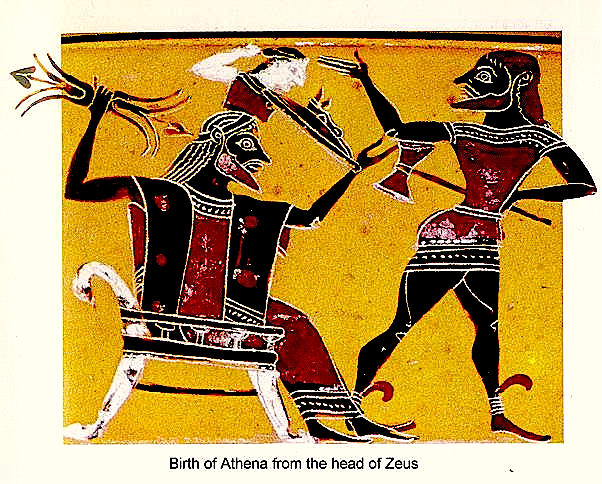
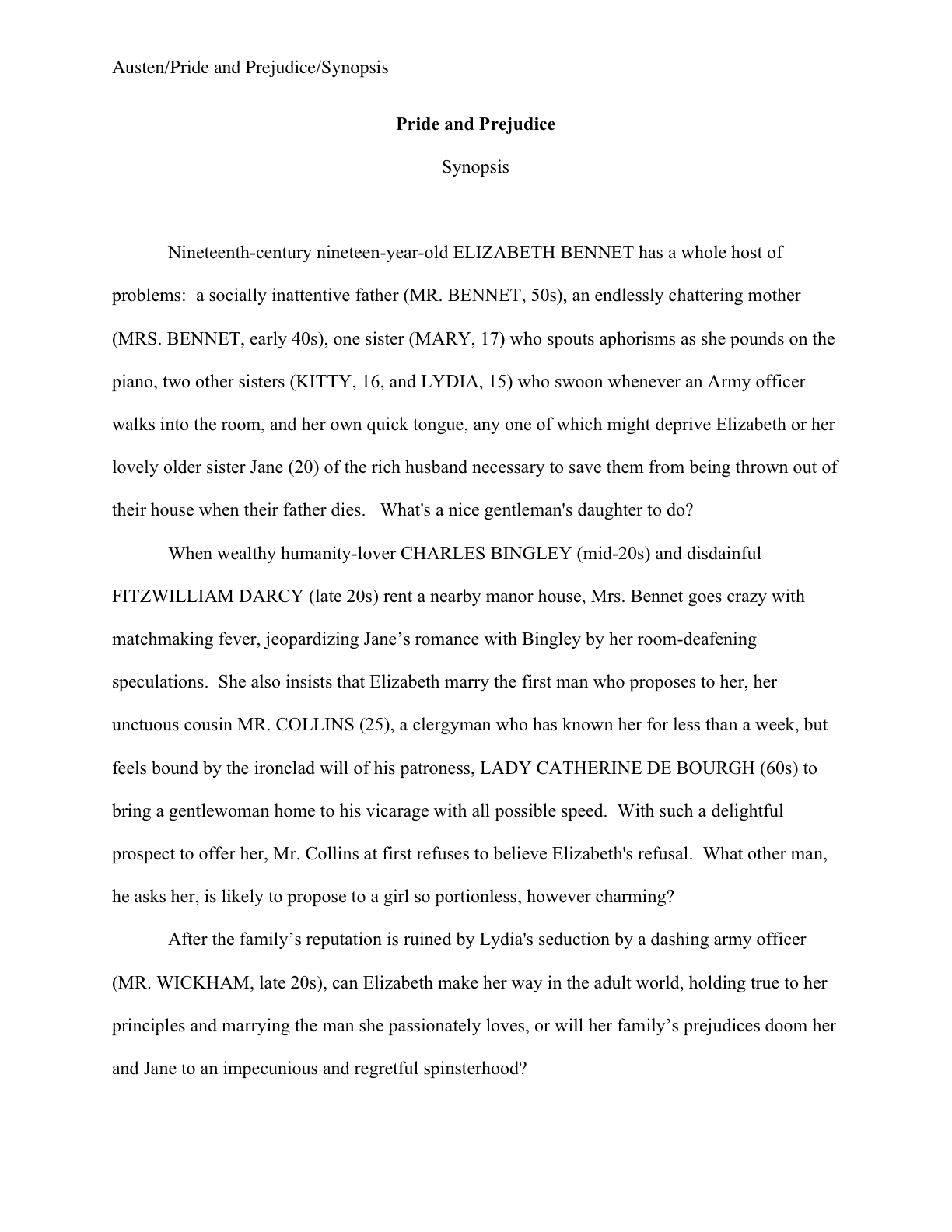

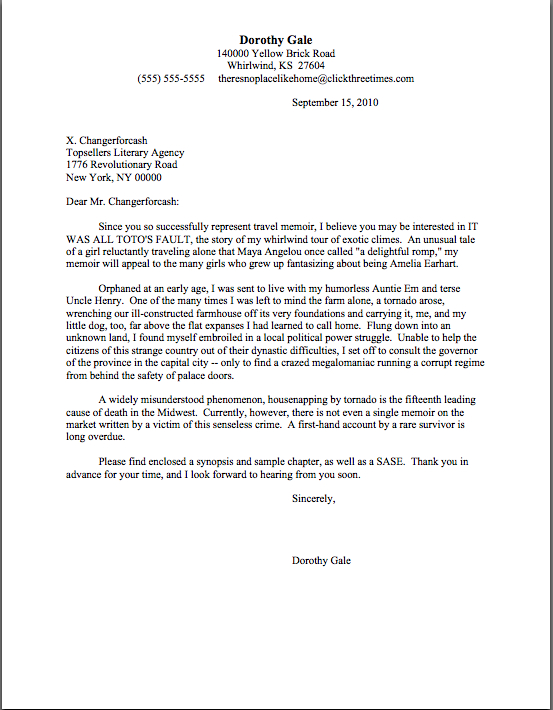
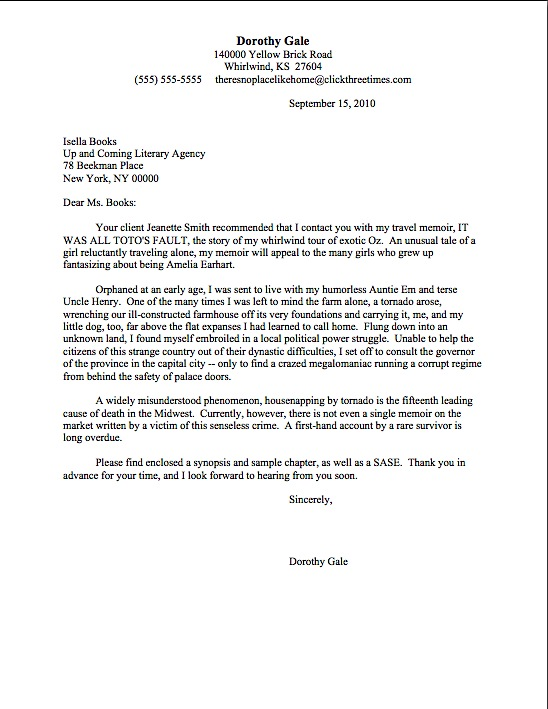
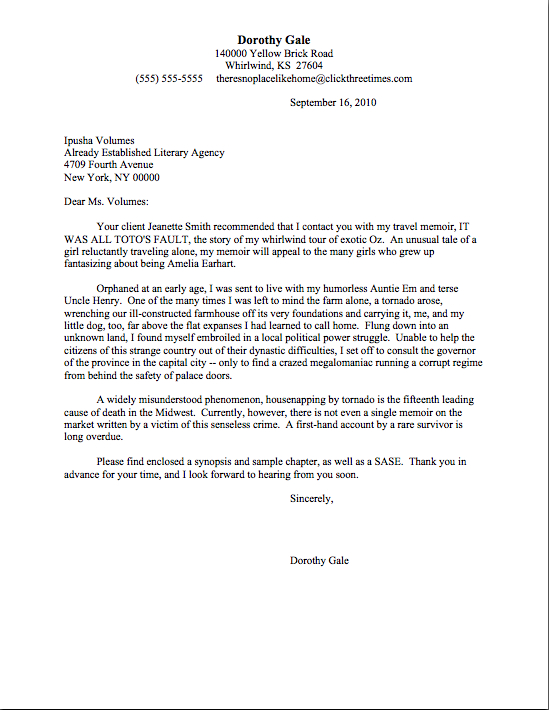
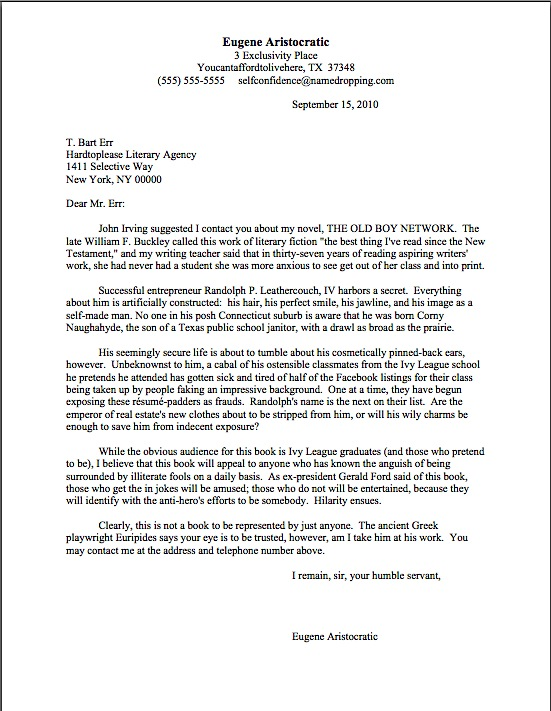
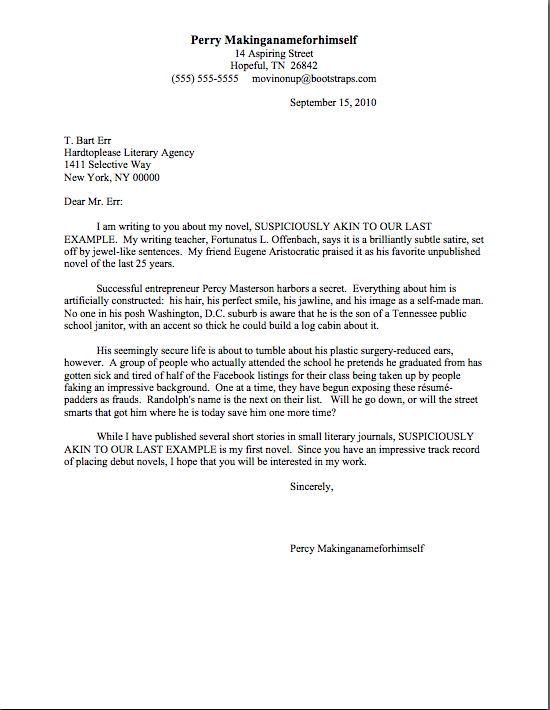

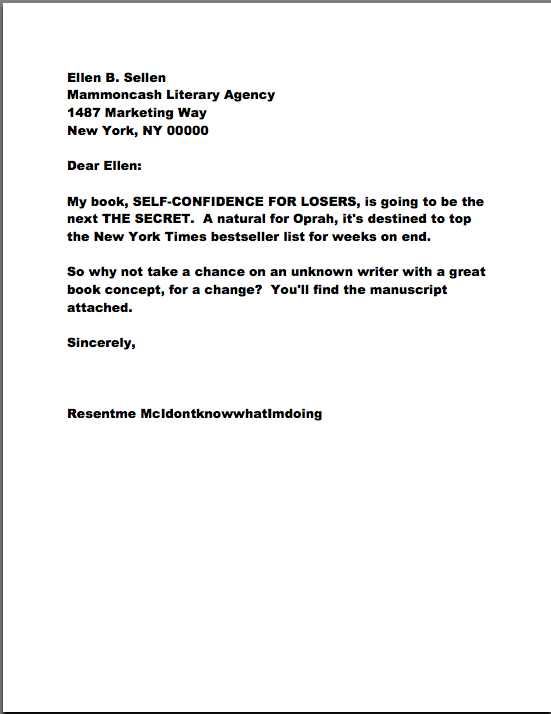
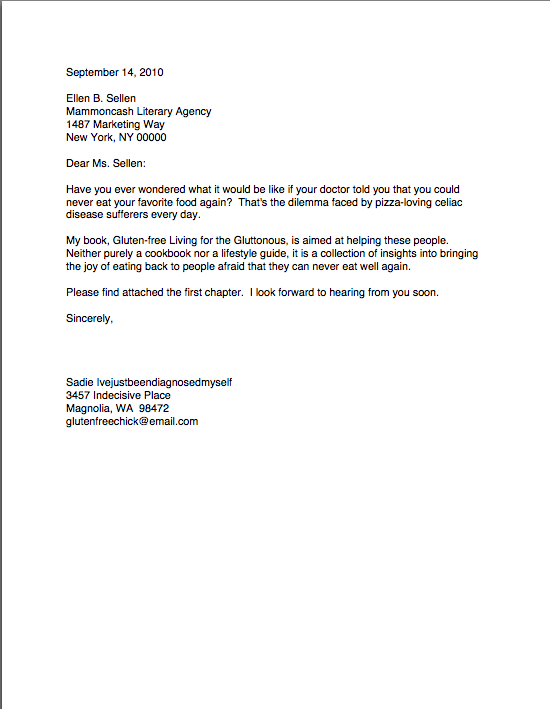
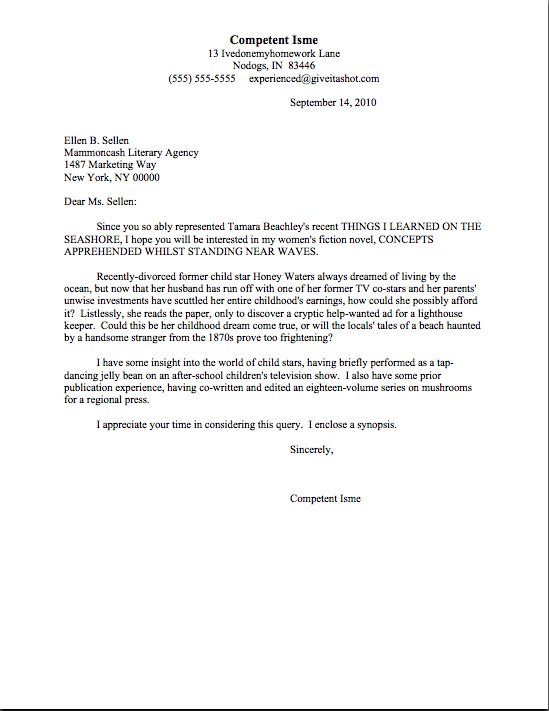
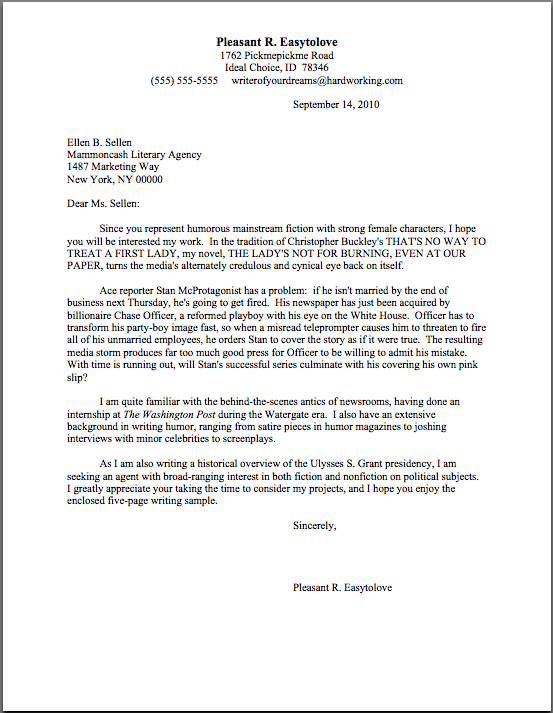

 No matter how many pages or extra materials you were asked to send, do remember to read your submission packet IN ITS ENTIRETY, IN HARD COPY, and OUT LOUD before you seal that envelope. Lest we forget, everything you send to an agency is a writing sample: impeccable grammar, punctuation, and printing, please.
No matter how many pages or extra materials you were asked to send, do remember to read your submission packet IN ITS ENTIRETY, IN HARD COPY, and OUT LOUD before you seal that envelope. Lest we forget, everything you send to an agency is a writing sample: impeccable grammar, punctuation, and printing, please.
 No matter how many pages or extra materials you were asked to send, do remember to read your submission packet IN ITS ENTIRETY, IN HARD COPY, and OUT LOUD before you seal that envelope. Lest we forget, everything you send to an agency is a writing sample: impeccable grammar, punctuation, and printing, please.
No matter how many pages or extra materials you were asked to send, do remember to read your submission packet IN ITS ENTIRETY, IN HARD COPY, and OUT LOUD before you seal that envelope. Lest we forget, everything you send to an agency is a writing sample: impeccable grammar, punctuation, and printing, please.


